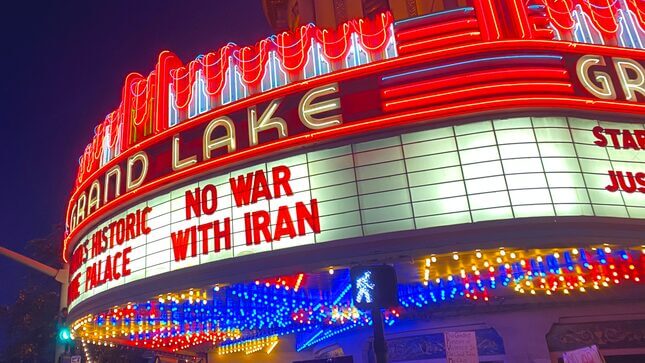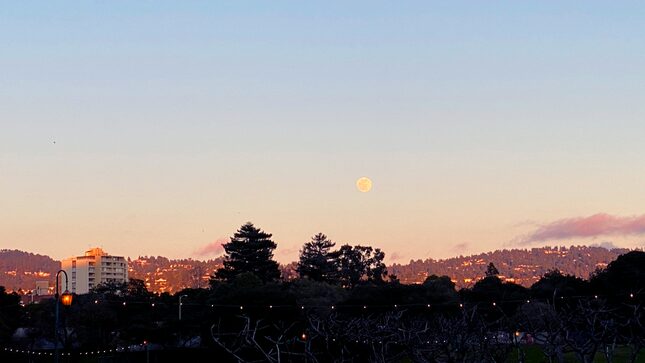Fear and Loathing From an Antiwar Protest
Politics

OAKLAND—It’s a chilly Thursday night, the moon hanging low and full over Lake Merritt. Outside the historic Grand Lake Theatre, a mass of around 300 people has gathered, chanting “No Trump, No War.” Sara, a protester in her mid-70s who who has organized a demonstration every week outside the theatre since Trump’s election in 2016, stands at the heart of the crowd. “People say we’re preaching to the choir,” she tells me, “but sometimes the choir needs louder voices.”
Like many of the protests held here and across the country since Trump was elected, attendees hold signs with puns, roasts of Trump’s haircut, or calls to end U.S. imperalism. But this protest, in solidarity with antiwar actions across the U.S., has a new message, with attendees holding printouts of the official “No War With Iran” visuals. Sara’s signs look weathered; she says that in the trunk of her car, the collection of protest signs she’s accumulated over the last four years could stand in as an unofficial history of the Trump administration. “I have the immigration ban, the sexual assaults, North Korea.” She pauses. “Now and then news happens, and we get crowds like this.”
-

-

-

-

-

-

-

-

-

-

-

-

-

-

-

-

-

-

-

-

-

-

-

-

-

-

-

-

-

-

-

-

-

-

-

-

-

-

-

-









































